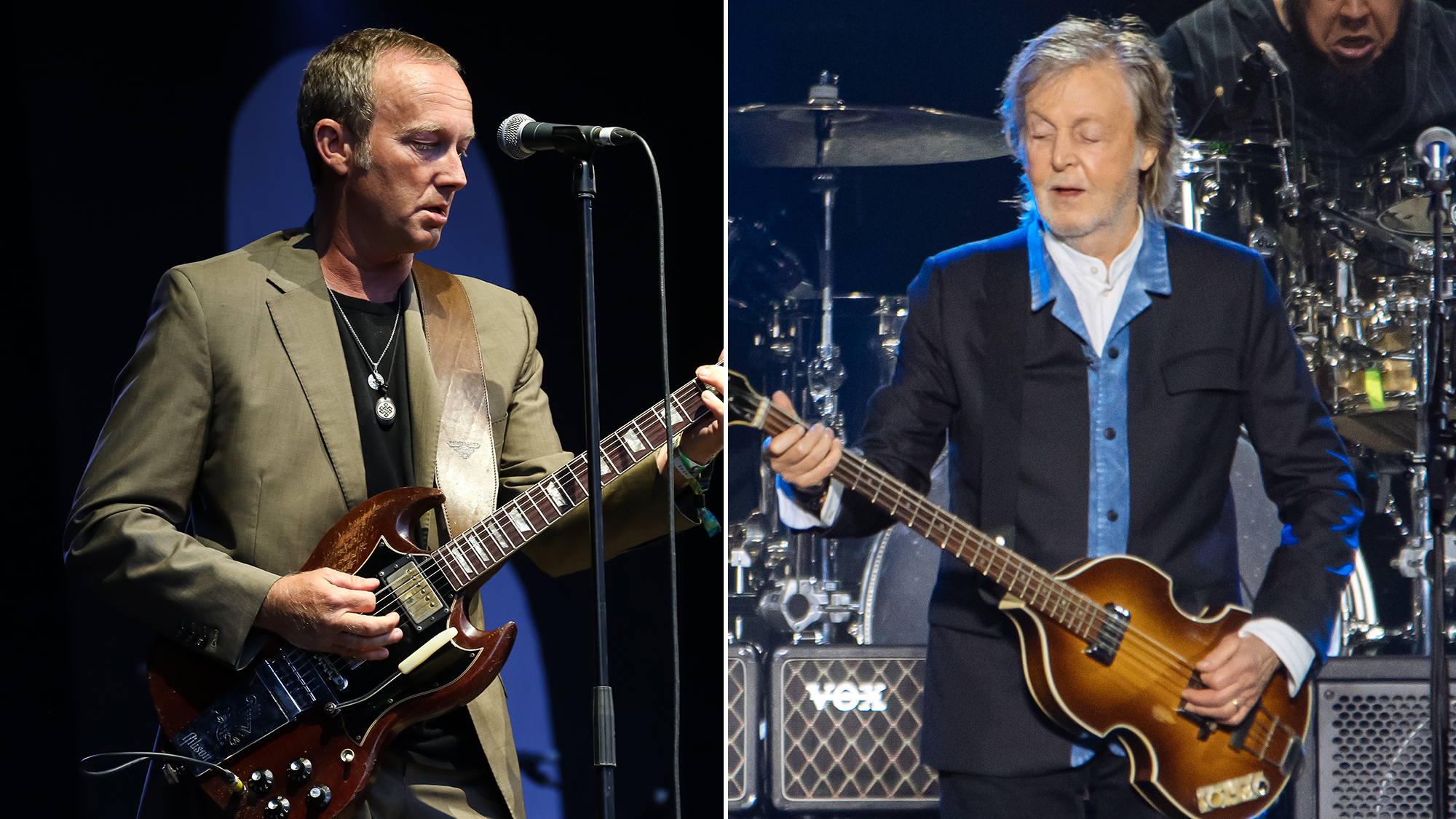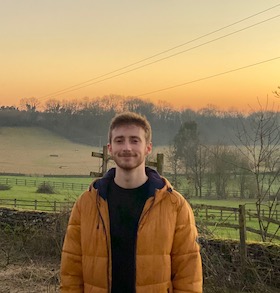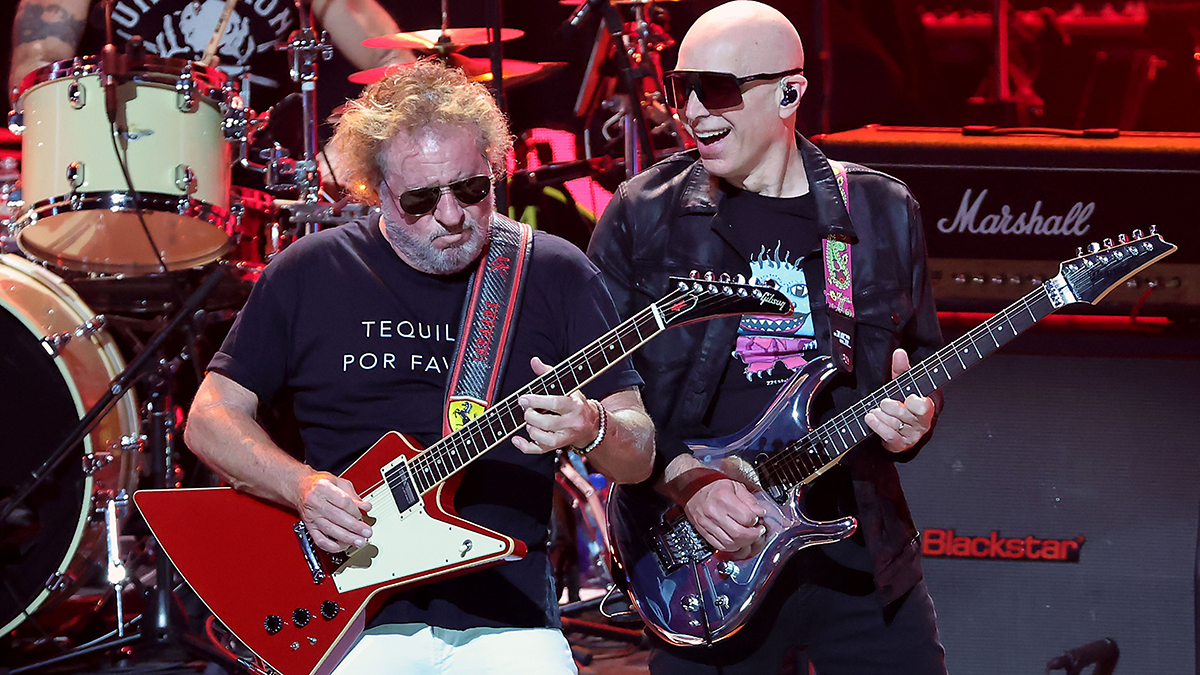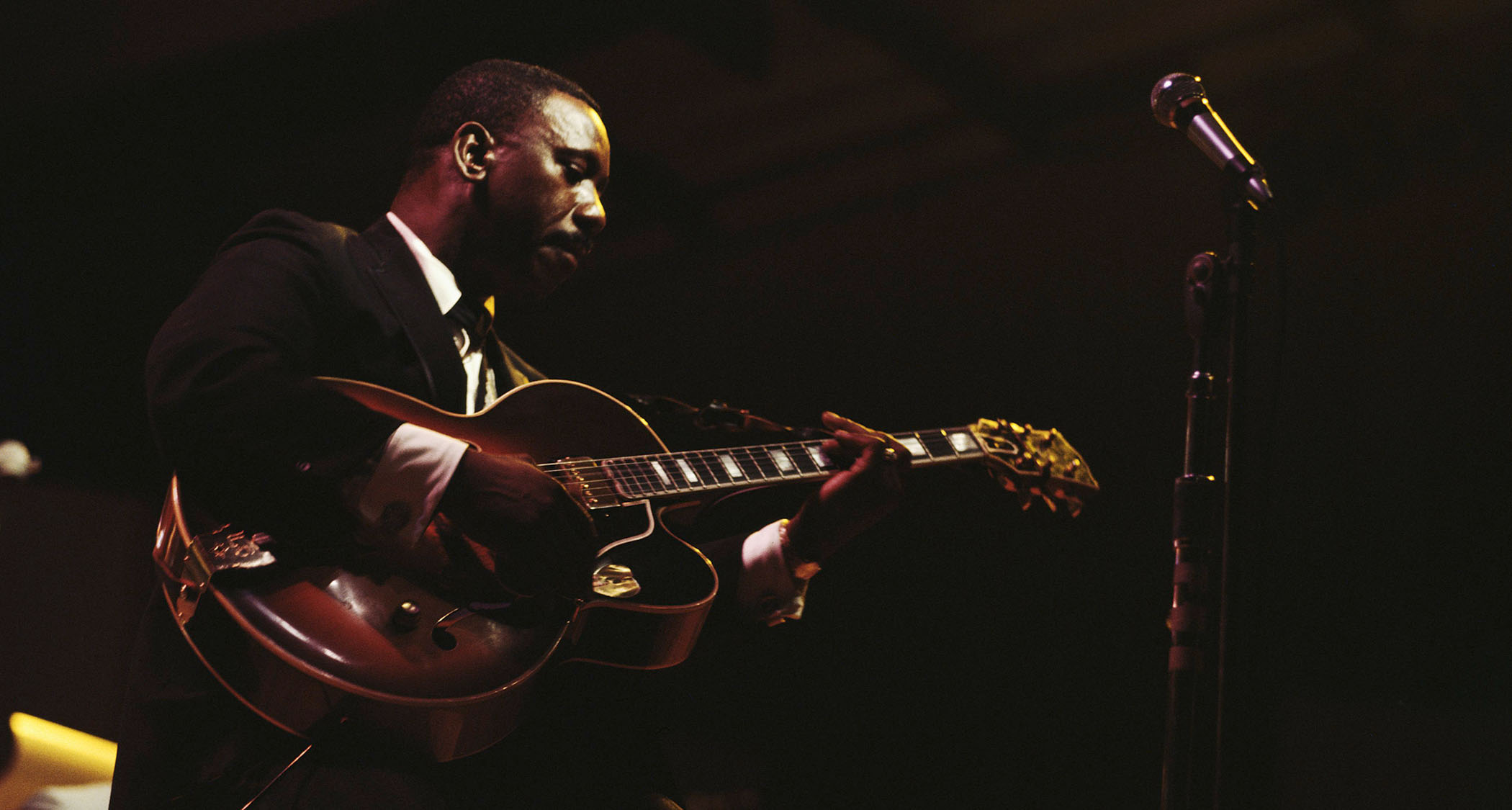“We all turned up and laid down the backing track. Then, they told me that maybe Paul McCartney would be coming down”: Steve Cradock on that time he recorded with a Beatle – using Paul Weller’s Epiphone Casino
Cradock and McCartney formed a supergroup with Weller, Noel Gallagher, Steve White and Carleen Anderson during the recording of 1995's The Help Album

Steve Cradock’s career has been filled with memorable milestones and notable experiences, from sharing the stage with Paul Weller to, penning Ocean Colour Scene classics like The Riverboat Song and, er, smoking Jimi Hendrix’s Stratocaster in a joint.
Another key credit on the electric guitar star’s sprawling resumé includes The Help Album from 1995, which saw Cradock line up alongside a raft of big-name musicians to raise money for UK non-profit War Child.
Radiohead, Oasis, Blur and Manic Street Preachers were all involved in the formation of the record, as was Paul McCartney – who ended up helping craft a cover of The Beatles' Come Together that Cradock played guitar on.
“I was told that there’s a charity, and it was set up by Go! Records, and was asked to be on it,” Cradock tells Guitar World in an upcoming interview. “We all turned up and laid down the backing track for Come Together. And then, they told me that maybe Paul McCartney would be coming down.
“That day just opened up into the most incredible thing. Paul McCartney is just a fantastic guitar player. It was kind of a beautiful afternoon, where even Johnny Depp and Kate Moss showed up. It was all kind of fancy, really.”
Understandably, the session with McCartney proved to be a special experience, and Cradock ended up swapping out his usual rig – and took up position behind Paul Weller's gear for the cover.
“That was amazing. What a day that was,” Cradock expands. “I was actually using Paul Weller’s Epiphone Casino. It was a ’66 Casino on that track [Come Together], and I would have been going through his Marshall Bluesbreaker.
Get The Pick Newsletter
All the latest guitar news, interviews, lessons, reviews, deals and more, direct to your inbox!
“It was for War Child, and we’re talking about fucking pop stars and [all that] bollocks, really,” Cradock says of the experience. “But it was with great musicians who I love, right? Then you’re also talking about War Child, which was a really amazing charity. So, it was also about that.”
For the occasion, Cradock and McCartney formed the Smokin' Mojo Filters supergroup with Paul Weller, Noel Gallagher, Steve White and Carleen Anderson.
The rest of The Help Album featured the likes of The Stone Roses, Massive Attack, Portishead and more across its 20-song tracklist – all recorded in a day (September 4, 1995) and mixed the following day.
The final product was released within the week; hitting shelves on Saturday September 9, 1995.
Keep your eyes peeled on GuitarWorld.com for the full interview with Steve Cradock.

Matt is the GuitarWorld.com News Editor. He has a Masters in the guitar, a degree in history, and has spent the last 16 years playing everything from blues and jazz to indie and pop. When he’s not combining his passion for writing and music during his day job, Matt records for a number of UK-based bands and songwriters as a session musician.










